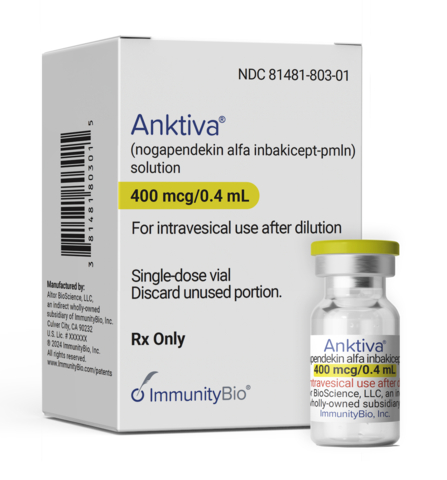Acquired immune deficiency syndrome (AIDS) is an ongoing public health issue across the world. About 36.9 million people — which corresponds to 0.5 percent of the planet’s population — have contracted the human immunodeficiency virus (HIV). It is predicted that there are 5000 new cases of HIV infection every day, and 500 of these happen in children.
HIV can conceal itself from the immune system and remain latent. There has been a lengthy search to find an HIV cure and there have been a few promising trials, including the stem cell transplantation reported at the 2022 Conference on Retroviruses and Opportunistic Infections (CROI-2022).
Antiretroviral drugs for HIV are classified as integrase strand transfer inhibitors (INSTIs), nucleoside/nucleotide reverse transcriptase inhibitors (NRTIs), non-nucleoside reverse transcriptase inhibitors (NNRTIs), cytochrome P4503A (CYP3A) inhibitors, protease inhibitors (PIs) and others.
Some examples of prescription drugs for treating HIV include ViiV Healthcare’s Tivicay (dolutegravir), Glaxo Wellcome’s (now GlaxoSmithKline) Ziagen (abacavir), GlaxoSmithKline’s Retrovir (zidovudine) and DuPont’s Sustiva (efavirenz). More than two dozen antiretroviral drugs are approved by the US Food and Drug Administration (FDA) to treat HIV infection.
Lenacapavir: A Treatment Candidate for HIV
The FDA has allowed clinical trials assessing the injectable lenacapavir, an investigational long-acting HIV-1 capsid inhibitor in development by Gilead Inc., to continue.
In March, the FDA released a complete response letter (CRL) for lenacapavir, citing compatibility issues of the drug solution in borosilicate glass and it resulted in the clinical hold of the drug. Now, Gilead has replaced the material of the container vial with aluminosilicate glass, proving it to be a good material for storage and compatibility.
“We are pleased to have identified an alternative vial for lenacapavir, and to now advance the robust clinical program for this potential first-in-class long-acting option for HIV treatment and prevention,” said Merdad Parsey, Chief Medical Officer of Gilead Sciences in the company’s press release.
To emphasize that the world is on the path of developing effective HIV treatments, Parsey added “Today’s news brings us one step closer to our goal of offering therapeutic options for the diverse communities affected by HIV as we work to end the epidemic for everyone, everywhere.”
XTALKS WEBINAR: Adopt QMS Functionality in Under 30 Days
Live and On-Demand: Wednesday, June 29, 2022, at 11am EST (4pm BST/UK)
Register for this free webinar to learn about implementing a quality management system (QMS) in weeks, using a streamlined process based on industry best practices. The featured speaker will discuss how life science companies are now approaching digital transformations differently, taking a more holistic approach that hyper-scales the power of data and analytics.
Mechanism of Action of Lenacapavir
Lenacapavir is designed to act as an inhibitor of the HIV capsid protein, and it inhibits the virus at distinct stages (early and late) of its life cycle. During the early stage, the drug binds itself between two adjacent capsid monomers and stabilizes the capsid shell. This inhibits the disassembly of the shell, which is a vital step for viral replication. Lenacapavir also impedes the transport of viral complexes across the nuclear pore of the cell. In late stages of the viral life cycle, the drug distorts the capsid lattice which subsequently leads to structural abnormalities in the virus and prevention of viral maturation.
Clinical Trials of Lenacapavir
Gilead has been conducting multiple ongoing clinical trials to evaluate the safety, dosing and efficacy of lenacapavir. The clinical trial CAPELLA (NCT04150068) involves evaluating the efficacy of lenacapavir as a functional monotherapy agent in participants with multidrug resistant HIV-1 infection.
CAPELLA is a Phase II/III trial that involves 72 participants divided into two cohorts of 36 patients each. Cohort 1 patients were assigned to receive oral lenacapavir or placebo along with their failing therapy during the first 14 days. Beginning on day 15, participants in the lenacapavir group were administered lenacapavir subcutaneously once every six months and those in the placebo group received oral lenacapavir followed by subcutaneous lenacapavir. Both groups in cohort 1 also received optimized background therapy. Cohort 2 patients were given oral lenacapavir with optimized background therapy on days 1 to 14. Starting on day 15, patients in cohort 2 were administered with subcutaneous lenacapavir once every six months.
At week 26 of the CAPELLA trial, 81 percent of cohort 1 patients and 83 percent of cohort 2 patients showed a viral load of less than 50 copies per mL, with a least-squares mean increase in CD4+ count of 75 and 104 cells per cubic mL, respectively. Injection-site reactions were the most common adverse events noted in the trial.
Related: Gilead Sues Distributors Selling Counterfeit HIV Drugs
GILEAD — The Journey to Fight HIV
Gilead’s journey to fight HIV took off with FDA approvals of its drugs between 2011 and 2018. The drug pioneer has already developed three different drugs for HIV treatment: Biktarvy (HIV-1 integrase inhibitor), Complera (a combination of nucleoside and non-nucleoside reverse transcriptase inhibitors) and Descovy (a viral replication inhibitor).
Ongoing Clinical Trials for mRNA HIV Vaccines
The National Institutes of Health (NIH) has launched a Phase I clinical trial in March to evaluate three mRNA HIV vaccines. Similarly, Moderna has its sights on mRNA vaccine development. In January, Moderna and the nonprofit scientific research organization IAVI have started a Phase I trial of HIV vaccine antigens delivered by mRNA technology. In addition, Moderna announced in March that the company has begun a Phase I study of its experimental HIV trimer mRNA vaccine (mRNA-1574).












Join or login to leave a comment
JOIN LOGIN